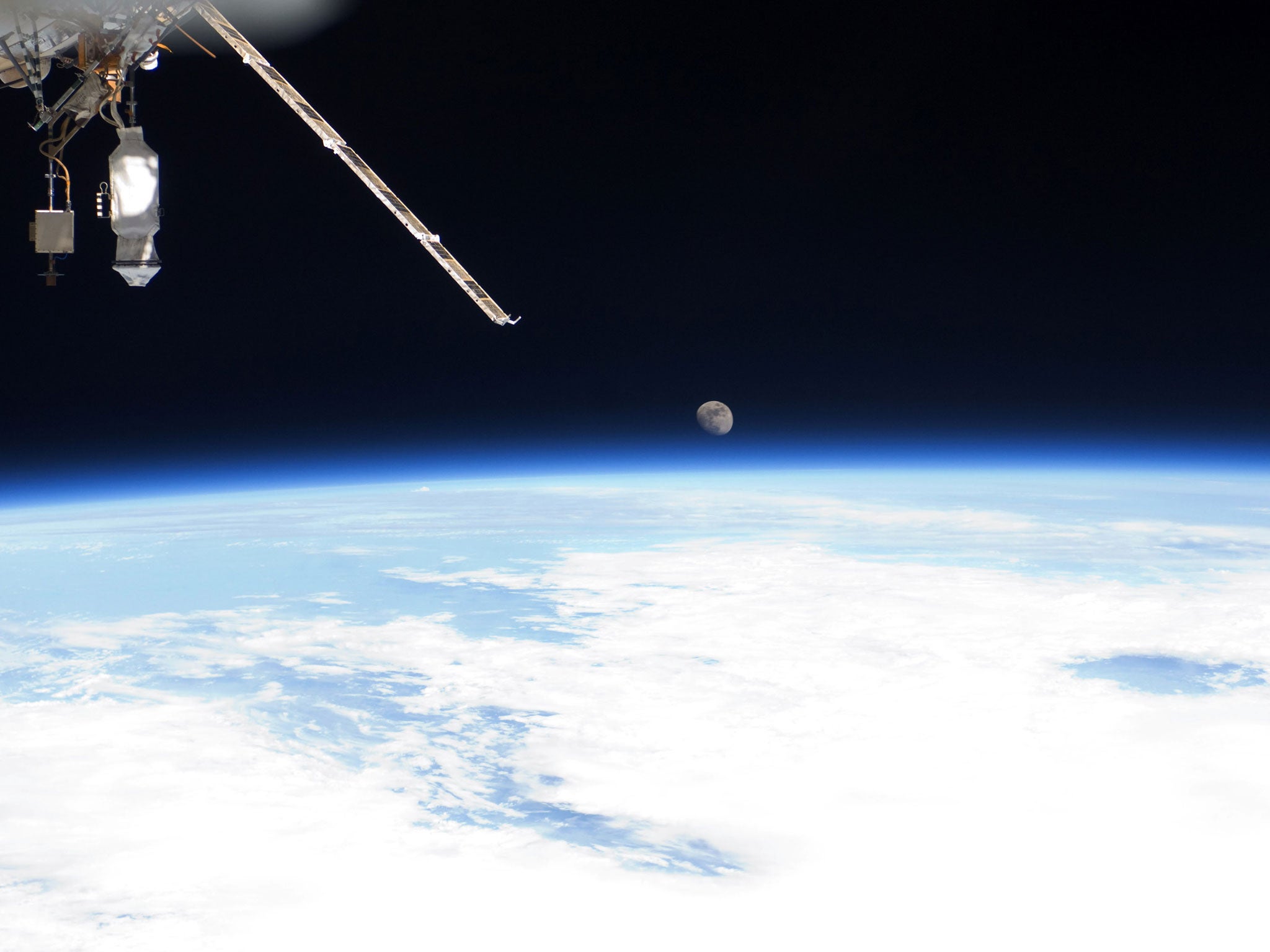Russia vows to ban US from using its shuttles to reach International Space Station in retaliation for Ukraine crisis sanctions
Moscow’s Soyuz shuttles are currently the only way American astronauts can reach the Earth-orbiting station

Your support helps us to tell the story
From reproductive rights to climate change to Big Tech, The Independent is on the ground when the story is developing. Whether it's investigating the financials of Elon Musk's pro-Trump PAC or producing our latest documentary, 'The A Word', which shines a light on the American women fighting for reproductive rights, we know how important it is to parse out the facts from the messaging.
At such a critical moment in US history, we need reporters on the ground. Your donation allows us to keep sending journalists to speak to both sides of the story.
The Independent is trusted by Americans across the entire political spectrum. And unlike many other quality news outlets, we choose not to lock Americans out of our reporting and analysis with paywalls. We believe quality journalism should be available to everyone, paid for by those who can afford it.
Your support makes all the difference.Russia has threatened to ban the US from using its spacecraft to access the International Space Station (ISS), in retaliation for a series of sanctions imposed over the crisis in Ukraine.
The ISS project is jointly operated by 15 countries but it can only be reached using Russia’s Soyuz spacecraft, since Nasa retired the Space Shuttle in 2011.
The two former Cold War rivals have collaborated on the project since the end of the “space race” despite their differences over foreign policy, but relations have deteriorated spectacularly since the annexation of Crimea into the Russian federation.
Issuing a series of tweets and later a full press conference, Russia’s deputy prime minister Dmitry Rogozin said that his country would withdraw its cooperation on the ISS after the current agreement expires in 2020.
Mr Rogozin also tweeted that Russia would stop exporting its advanced rocket engines to the US unless it received a clear commitment that they would not be used to launch military satellites.
He later told journalists: “We are very concerned about continuing to develop high-tech projects with such an unreliable partner as the United States, which politicises everything.”
The US has previously said it is interested in extending the $100 billion (£60 billion) ISS project until at least 2024, but following the crisis in Ukraine has joined with the EU in imposing a series of trade sanctions and asset freezes on companies and individuals linked to President Vladimir Putin.
Mr Rogozin said Moscow was planning “strategic changes” in its space industry after 2020 and aims to use money and “intellectual resources” that now go to the space station for a “project with more prospects”.
He suggested Russia could use the station without the US, saying: “The Russian segment can exist independently. The US one cannot.”
Nasa, which is currently working with private companies in the hope of restoring a US shuttle system by 2017, downplayed the comments coming from Moscow.
Spokesperson Allard Beutel said cooperation in space was a hallmark of US-Russian relations and the agency has not been notified of any changes.
Meanwhile, this morning a Russian Soyuz capsule successfully returned an international team of astronauts back to earth from the ISS.
Russian Mikhail Tyurin, American Rick Mastracchio and Koichi Wakata of Japan had spent 188 days in space, and came down under a white parachute on the plains of Kazakhstan three hours after detaching from the station three hours earlier.
They appeared smiling and unharmed as they were pulled from the capsule, with medical teams on hand to assess their condition as they readjusted to gravity.
Russians Alexander Skvortsov and Oleg Artemyev and American Steve Swanson remain aboard the ISS. Three more astronauts are due to launch for the station on 28 May.
Join our commenting forum
Join thought-provoking conversations, follow other Independent readers and see their replies
Comments